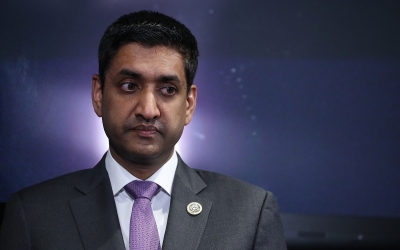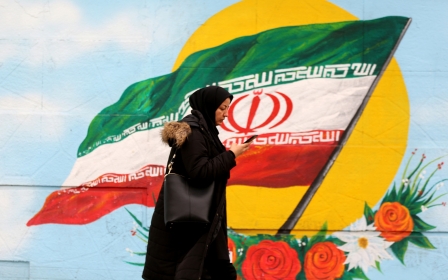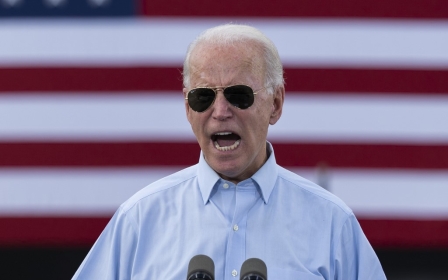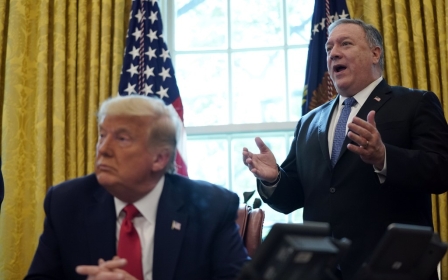Who is Gregory Meeks, incoming US House foreign affairs leader?
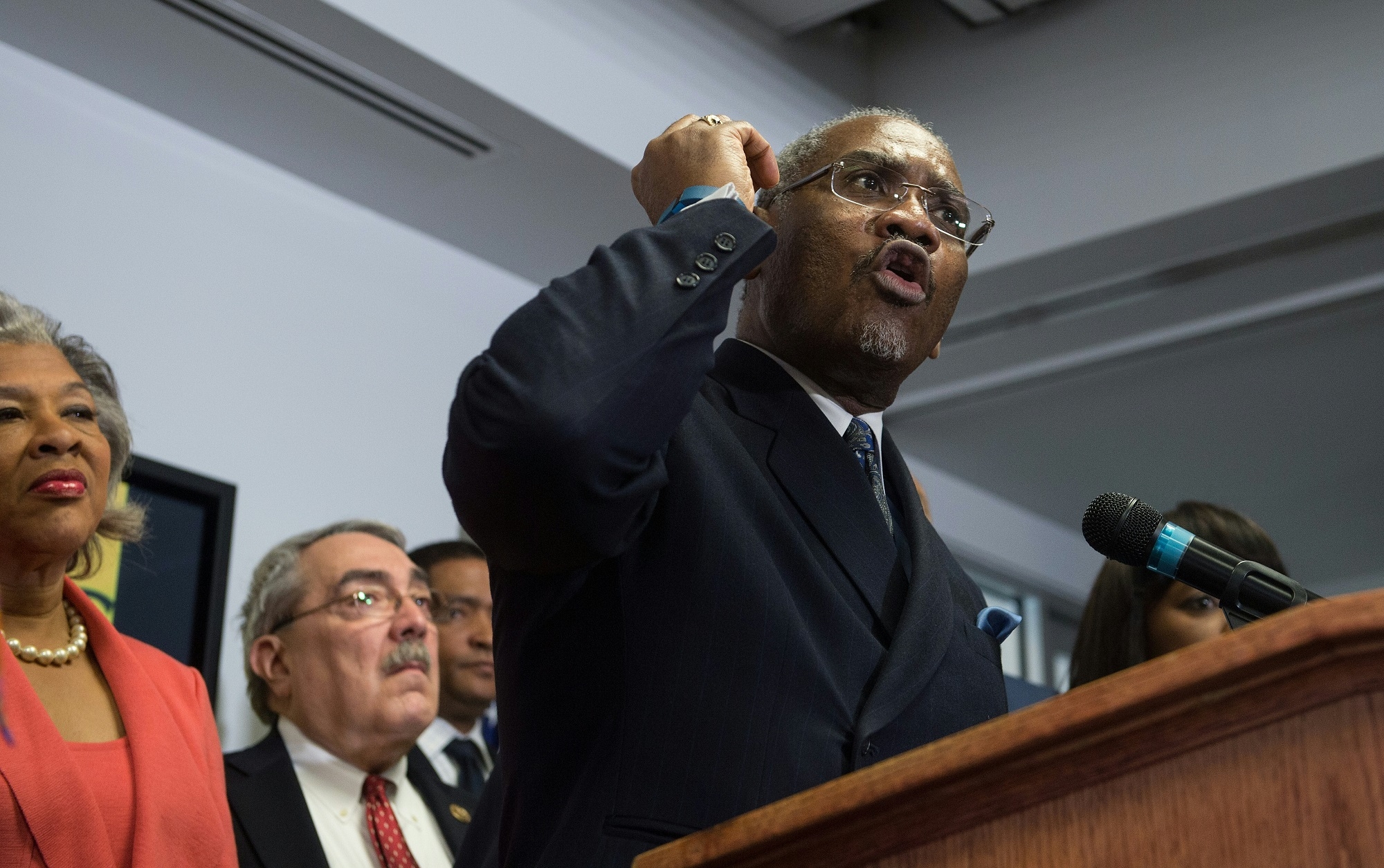
US Democrats elected moderate legislator Congressman Gregory Meeks to lead the House Foreign Affairs Committee (HFAC), ending Joaquin Castro's progressive bid for the top spot on the crucial committee.
Meeks will replace outgoing Congressman Eliot Engel - a staunchly pro-Israel veteran legislator who lost his primary to left-wing challenger Jamaal Bowman earlier this year.
Castro had garnered support from progressive groups in his bid for the committee's gavel, vowing to push against "wars of choice" and ensure greater representation for marginalised groups, including Palestinians.
On Thursday, Meeks won the race within the Democratic caucus with ease - defeating Castro 148-78. He will be the first African American to lead the committee since its inception nearly two centuries ago.
Meeks still needs to be confirmed by the entire House of Representatives once the new Congress convenes early next year, but with Democrats firmly in control of the legislative chamber, his election is all but guaranteed.
New MEE newsletter: Jerusalem Dispatch
Sign up to get the latest insights and analysis on Israel-Palestine, alongside Turkey Unpacked and other MEE newsletters
In his first statement after being elected as chair, Meeks vowed to question the traditional way of pursuing foreign policy and pledged to work for a return to the Iran nuclear deal and the World Health Organisation (WHO).
The multilateral agreement, known as the Joint Comprehensive Plan of Action (JCPOA), saw Tehran scale back its nuclear programme in exchange for lifting sanctions against its economy.
"We will work to rejoin the JCPOA and WHO, but we will also need to establish new coalitions to address the existential crisis of climate change and emerging threats," he said on Thursday.
"In pushing further on the fight for human rights across the world, we must lead by humble example with the weight of US moral credibility."
He also called for tightening Congress's constitutional authority over engaging in conflict abroad and ending military authorisations that have led "to ambiguous forever wars".
"This will not be a return to normal, but a leap towards a new way of doing business," Meeks said.
On the issues
The HFAC's gavel wields enormous power, including the ability to hold up legislation, call for hearings and issue subpoenas.
So where does Meeks stand on Middle East issues?
The legislator has served in the House for 22 years, representing a district in New York City. And while he has not made a progressive pitch for the gavel like Castro, he would represent a move away from Engel's hawkish views.
Last week, Meeks denounced the killing of Iranian nuclear scientist Mohsen Fakhrizadeh, raising concern that the assassination's aim may be to hinder President-elect Joe Biden's push to return to the nuclear deal with Tehran.
"I’m concerned that was the intention," he wrote on Twitter. "This will do little to curb Iran’s push for nuclear capabilities, but will derail the diplomatic pathway to peace."
Meeks voiced support for the nuclear agreement in 2015, despite saying it's "not a perfect deal".
In January, he called the US strike that killed top Iranian general Qassem Soleimani "reckless" and voted in favour of a resolution to curb President Donald Trump's authority to hit Iran.
Meeks voted against the Iraq war in 2002. He has also been critical of Trump's unquestioning alliance with Saudi Arabia, including US support for Riyadh's war in Yemen.
"Our moral standards must be consistent in our pursuit of peace in the Middle East," he said in 2018.
"Just as we rebuke Iran for its wrong-doings, so too must Saudi Arabia be held accountable for its human rights abuses, especially when committed with US-made weapons. It is urgent we act now."
On the Israeli-Palestinian conflict, Meeks has been a reliable supporter of Israel despite the occasional, mild criticism.
Earlier this year, he called Israel's proposed plans to annex parts of the West Bank "anathema to a two-state solution" and urged applying pressure on the Israeli government, including using US military aid as leverage to prevent that outcome.
But he reversed his position weeks later.
"We know the extreme importance in the region to make sure that Israel has the right to defend itself - and the dollars that we give Israel to defend itself is absolute and unequivocal," Meeks told the American Jewish Committee at a virtual event in August.
In 2015, Meeks - along with most Black legislators - skipped an address by Israeli Prime Minister Benjamin Netanyahu to Congress that took place without the invitation of then-President Barack Obama in breach of diplomatic protocols.
'Out of touch'
Meeks angered progressives early in 2020 when he endorsed former New York Mayor Mike Bloomberg for president.
Bloomberg had faced scrutiny over the "stop and frisk" programme that targeted Black and minority communities, as well as New York's surveillance scheme against Muslim Americans during his tenure as mayor.
Both Meeks and Castro voted in favour of a symbolic resolution condemning the Palestinian-led Boycott, Divestment and Sanctions (BDS) movement last year.
On Thursday, IfNotNow, a youth-led progressive Jewish organisation, voiced disappointment at congressional Democrats' unwillingness to hand the HFAC's gavel to Castro, saying that Meeks' election proves that legislators are "out of touch" with their own base.
"Democrats want the United States to use human dignity and freedom as the guiding values of its foreign policy towards the world and towards Israelis and Palestinians," the group said in a statement.
IfNotNow also urged Meeks to begin listening to Democratic voters and their "new vision" of foreign policy, "not AIPAC's hawks and lobbyists", referring to the American Israel Public Affairs Committee.
J Street, a liberal group that describes itself as pro-Israel and pro-peace, welcomed Meek's nomination.
"We look forward to continuing to work together with Chairman Meeks to help revitalize the State Department and American diplomacy, to return the United States to compliance with the JCPOA, to promote comprehensive Israeli-Palestinian peace and to oppose the dangers of creeping annexation in the West Bank," the group's president Jeremy Ben-Ami said in a statement.
The National Iranian American Council (NIAC) also praised Meeks, calling him a "supporter of diplomacy".
"It is refreshing that a proponent of a diplomacy-first approach who understands the costs of sanctions and war will be overseeing the Foreign Affairs Committee at a crucial inflection point for American diplomacy," the group said in a statement.
Middle East Eye delivers independent and unrivalled coverage and analysis of the Middle East, North Africa and beyond. To learn more about republishing this content and the associated fees, please fill out this form. More about MEE can be found here.



